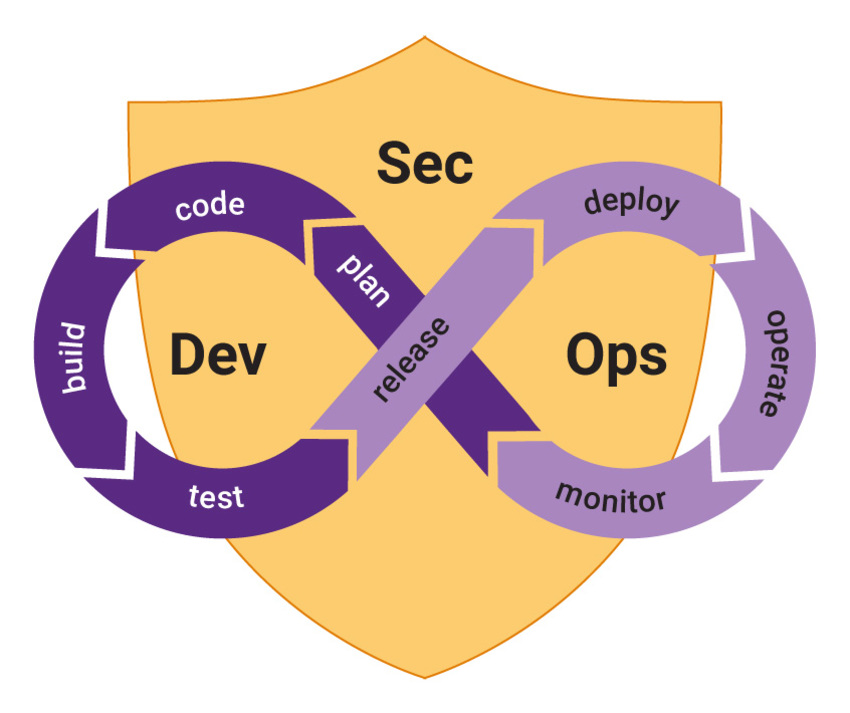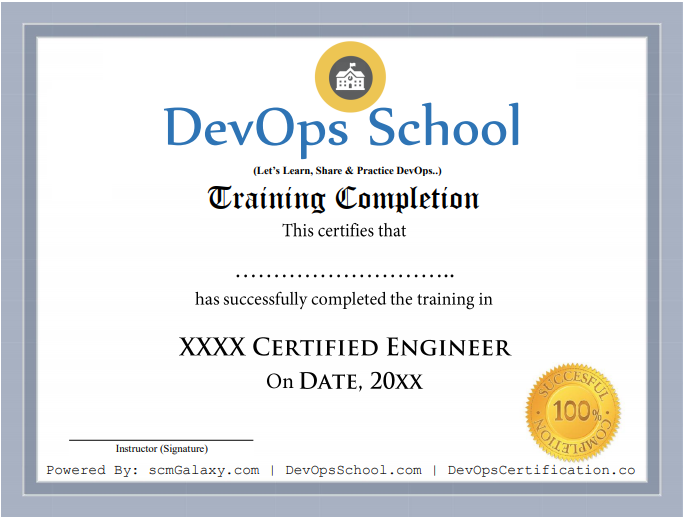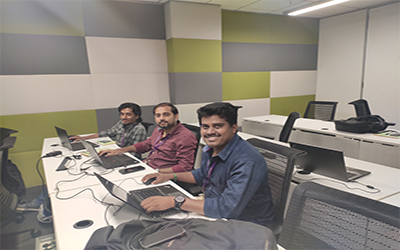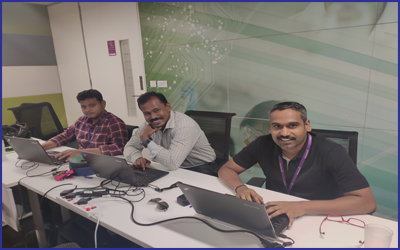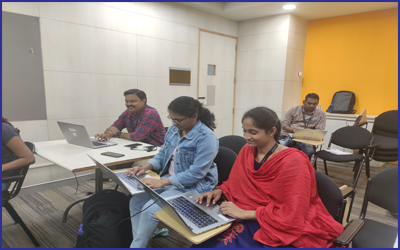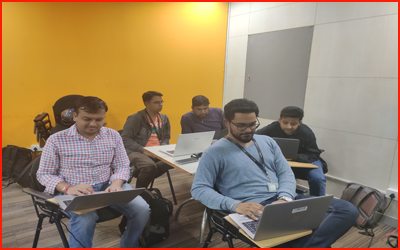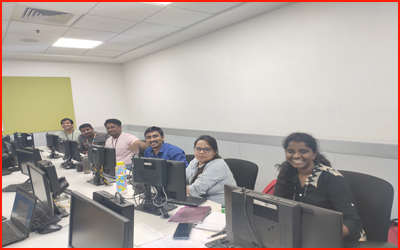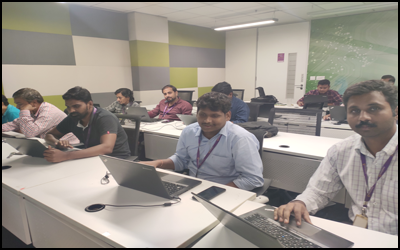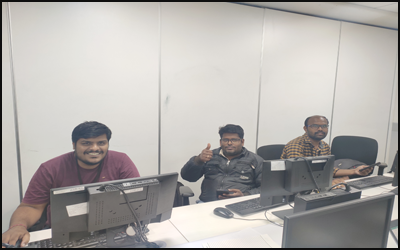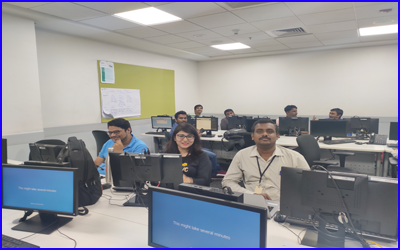8000+
Certified Learners
15+
Years Avg. faculty experience
40+
Happy Clients
4.5/5.0
Average class rating
What is DevSecOps Foundation?
The DevSecOps Foundation is a methodology that integrates security practices into the DevOps process, aiming to ensure that security is a shared responsibility across the entire software development lifecycle. It emphasizes the importance of embedding security measures from the earliest stages of development rather than treating security as an afterthought or a separate function. By fostering collaboration between development, security, and operations teams, DevSecOps seeks to deliver software faster while maintaining a strong security posture. This approach automates security processes, uses tools for continuous monitoring, and implements best practices to detect vulnerabilities early, improving both efficiency and security.
Why DevSecOps Foundation is important
The DevSecOps Foundation is important because it addresses the growing need for integrating security into the fast-paced world of software development. Traditional approaches often treated security as a separate function, leading to delays and vulnerabilities discovered too late in the process. By embedding security practices from the start, DevSecOps ensures that security is considered at every stage of development, leading to safer, more resilient software.
Key reasons for its importance include:
- Faster Delivery Without Sacrificing Security: DevSecOps integrates security into the CI/CD pipeline, ensuring that security checks are automated and do not slow down the release process. This results in faster time-to-market while maintaining strong security practices.
- Proactive Security: By addressing vulnerabilities early in the development cycle, DevSecOps reduces the likelihood of security issues going unnoticed until later stages, where they can be more expensive and difficult to fix.
- Improved Collaboration: It fosters a culture of collaboration between development, security, and operations teams. Everyone shares responsibility for security, breaking down traditional silos and promoting a more efficient, secure process.
- Enhanced Compliance: Continuous monitoring and automated security testing help ensure compliance with regulatory requirements, reducing the risk of non-compliance penalties.
- Reduced Costs: By identifying and addressing security flaws early in the development process, DevSecOps helps prevent costly remediation efforts after software deployment.
DevSecOps Foundation Course Feature
The DevSecOps Foundation Course provides a structured pathway to understanding and implementing security practices within the DevOps framework. The key features of this course include:
1. Introduction to DevSecOps Principles
- The course covers the foundational concepts of DevSecOps, explaining how to integrate security into the DevOps pipeline, and introduces the "shift-left" approach, which ensures security is considered from the start.
2. Security Automation
- Focus on automating security processes, including tools and techniques for continuous security testing and monitoring in the CI/CD pipeline. Participants learn how to automate security tasks like vulnerability scanning and configuration management.
3. Collaboration and Culture Building
- The course emphasizes the importance of collaboration between development, security, and operations teams, breaking down silos and fostering a culture where security is everyone’s responsibility.
4. Risk Management
- Participants learn about identifying, assessing, and mitigating security risks throughout the software development lifecycle. This includes threat modeling, risk analysis, and the use of tools for early detection of security issues.
5. Security by Design
- Introduces practices for embedding security from the design phase, ensuring that software is developed with security as a primary consideration rather than an afterthought.
6. Continuous Integration and Continuous Delivery (CI/CD) Security
- Participants are taught how to secure the CI/CD pipeline by integrating automated security checks, ensuring that code is tested for vulnerabilities at every stage of the release process.
7. Hands-on Learning and Labs
- Many courses offer hands-on labs or practical exercises, where participants can apply DevSecOps tools and techniques in simulated or real-world environments to reinforce learning.
8. DevSecOps Tools and Technologies
- An overview of key DevSecOps tools such as static application security testing (SAST), dynamic application security testing (DAST), container security tools, and more. Participants are guided on how to integrate these tools within their DevOps workflows.
9. Best Practices and Compliance
- Participants are introduced to industry best practices and frameworks such as OWASP Top 10, NIST, and CIS Controls to ensure that security standards are met. It also covers compliance management and regulatory requirements for securing software.
10. Governance and Metrics
- Learn how to set up governance policies for continuous security and how to measure the success of DevSecOps initiatives through relevant metrics, helping ensure accountability and ongoing improvement.
DevSecOps Foundation Training objectives
The DevSecOps Foundation Training aims to equip participants with a comprehensive understanding of integrating security into the DevOps process. The primary objective is to instill core principles of DevSecOps, emphasizing the importance of shifting security "left" in the software development lifecycle, which means considering security from the earliest stages of development. Participants will learn how to foster collaboration between development, security, and operations teams, creating a culture of shared responsibility for security. The training also focuses on implementing security automation and utilizing various tools to continuously monitor and test security within the CI/CD pipeline. Furthermore, attendees will explore best practices for risk management, compliance, and governance, ensuring that security measures align with regulatory requirements. By the end of the training, participants will be equipped to effectively integrate security into their DevOps practices, leading to the development of secure, resilient software.
DevSecOps Foundation Target audience
The DevSecOps Foundation Training is designed for a diverse audience involved in software development and operations. The target audience includes:
- DevOps Professionals: Individuals already working in DevOps roles who want to enhance their understanding of security practices and how to integrate them effectively into their workflows.
- Security Professionals: Security analysts and engineers looking to bridge the gap between security and development processes, learning how to collaborate with DevOps teams to improve security posture.
- Software Developers: Developers seeking to gain insights into secure coding practices and how to incorporate security measures throughout the software development lifecycle.
- Operations Engineers: IT operations staff who need to understand the implications of security in the deployment and management of applications and infrastructure.
- Project Managers: Managers overseeing development and operations teams who want to promote a culture of security and ensure that security is a priority throughout the project lifecycle.
- Compliance and Risk Management Professionals: Individuals responsible for ensuring compliance with regulations and managing security risks, who need to understand how to implement DevSecOps practices effectively.
- IT Executives: Leaders and decision-makers interested in fostering a security-focused culture within their organizations and understanding the strategic value of integrating security into DevOps.
DevSecOps Foundation Training methodology
The DevSecOps Foundation Training utilizes a comprehensive and interactive methodology designed to ensure participants fully understand the integration of security within the DevOps framework. Here are the key components of the training methodology:
Blended Learning Approach:
- Combines various instructional methods, including live instructor-led sessions, online modules, and self-paced resources to accommodate different learning styles and schedules.
Interactive Sessions:
- Engages participants through discussions, Q&A sessions, and collaborative activities that encourage sharing of ideas and experiences, fostering a deeper understanding of the material.
Hands-On Labs:
- Offers practical, hands-on exercises where participants can apply their knowledge in real-world scenarios. This experiential learning helps solidify concepts and tools used in DevSecOps.
Case Studies and Real-World Examples:
- Incorporates case studies that illustrate successful DevSecOps implementations, allowing participants to analyze challenges and solutions faced by organizations.
Group Activities:
- Facilitates team-based activities that promote collaboration, encouraging participants to work together to solve security-related challenges within a DevOps context.
Assessment and Feedback:
- Includes quizzes and practical assessments to evaluate understanding and retention of concepts, along with constructive feedback to guide learning.
Certification Preparation:
- Prepares participants for certification exams by familiarizing them with exam formats, content, and study strategies, enhancing their credentials in the field.
Continuous Learning and Resources:
- Encourages ongoing engagement with DevSecOps principles beyond the training through recommended resources, access to community forums, and opportunities for further education.
DevSecOps Foundation Training materials
The DevSecOps Foundation Training materials typically include a comprehensive set of resources designed to equip participants with the necessary knowledge and tools to integrate security into their DevOps processes. These materials often consist of presentation slides that cover the foundational principles of DevSecOps, highlighting key concepts such as security automation, vulnerability management, and continuous integration/continuous deployment (CI/CD) with a security focus. Detailed guides and tutorials on using DevSecOps tools, such as Static Application Security Testing (SAST), Dynamic Application Security Testing (DAST), and Software Composition Analysis (SCA), are provided to ensure participants can implement automated security testing. Case studies and real-world examples are included to demonstrate successful DevSecOps implementations. Participants also receive access to hands-on labs or virtual environments, where they can practice setting up secure CI/CD pipelines, run security tests, and automate compliance checks. Additionally, reading materials, such as whitepapers, industry reports, and recommended best practices, support the theoretical knowledge. Quizzes, assessments, and certification exam preparation materials are provided to help participants assess their learning and achieve certification upon completing the course.
